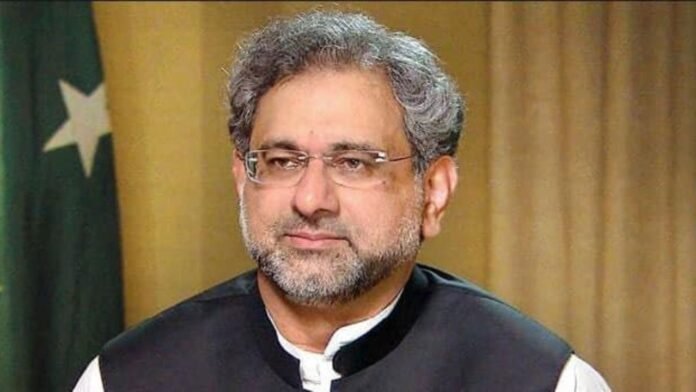Shahid Abbasi, the ex-prime Minister, criticized the authorities’ action against Pakistan Tehreek-e-Insaf (PTI). He argued that such steps were not part of any government’s mandate and would set a bad example for political freedoms anywhere.
Criticism of Government Decision
Abbasi condemned this move, stating that no government should have the power to limit any political outfit. He added that dissent and pluralism are fundamental tenets of democracy that must be protected at all costs. Referring to PTI, he cautioned that banning it may further polarize already tense politics while undermining democratic values.
Potential Repercussions
Abbasi expressed worry over wider ramifications by suggesting that other parties, apart from PTI, might suffer from this ruling, thus hindering their free operation. He feared any attempt to crush political opposition might result in legal battles reaching the Supreme Court through judicial review.
Questioning Government Legitimacy
Abbasi questioned the mandate of the current setup, noting that an illegitimate regime undermines its credibility. He implied that larger parties with significant backing should consider using constitutional means like no-confidence motions instead of arbitrary curbs.
Legal and Ethical Complexity
He spoke about the ethical and legal implications surrounding phone tapping or surveillance activities, which touch many areas, including privacy rights within the broader framework of the law.
Call for Parliamentary Discourse
While speaking at a press conference at the National Press Club in Islamabad, Abbasi demanded parliamentary scrutiny, especially when giving broad powers to grade 18 officers according to the PTI Act. He wondered why the government had yet to bring such vital matters before Parliament yet stressed transparency and accountability in governance.
Upholding Judicial Independence
Lastly, Shahid Abbasi emphasized the importance of honoring court rulings, especially those from the highest court in the land. The judge said that the judiciary is essential for solidifying legality and justice, as it guarantees equal rights to everyone. Consequently, he urged all parties to follow legal precedents and constitutional standards.
Shahid Khaqan Abbasi’s critique highlights broader concerns about political rights and good governance within Pakistan, indicating his commitment to democracy amid ongoing political contestations and litigations over legality.


